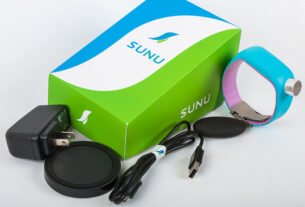The study, conducted by researchers at Maastricht University, The Netherlands and funded by ZonMw, the Netherlands Organization for Health Research and Development, had as objective to gauge the feasibility of adding a web-based patient self-management support application called MasterYourBreath.
“eHealth apps have a great potential of impacting patients health and improving health care. However, there is no conclusive evidence for their effectiveness and cost-effectiveness yet. Also, many e-Health applications with different purposes and for different target populations are being developed, but they often face adoption problems. That’s why it’s important to investigate how we can make them more appealing and beneficial to patients and health care providers,” said Viola Voncken-Brewster, one of the authors of the study from Maastricht University Medical Center, to E-Health Reporter Latin America.
Chronic Obstructive Pulmonary disease (COPD) is one of the main causes of morbidity and mortality in developed countries. Since COPD is not fully reversible, it is recommended that patient self-management and behavior change become an integral part of treatment, in order to prevent the disease from progressing and improve health status.
Viola Voncken-Brewster explained: “The study provides lessons learned to optimize the integration of a self-management tool in primary care, in order to improve self-management related care for COPD patients.”
Eleven patients, recruited by three nurses, used the application 1 to 7 times. Most patients thought that the application supported self-management, but their interest diminished after multiple uses. Also, impact on patients’ health could not be determined due to the small sample size. In the other side, nurses reported benefits for the organization of care and made suggestions to optimize the use of the reports.
“I think that there are several factors that can increase long term interest of patients. For instance, the possibility for patients of monitoring their behavior and goals over time, regular updates on the website and more effective reminders could potentially increase application use. Also, our application was web-based and not suitable for tablet or smart phone use. Developing apps for tablets and smart-phone may help,” argued Voncken-Brewster.
The e-Health application included a questionnaire that captured information on demographics, self-management related behaviors (smoking cessation, physical activity and medication adherence) and their determinants, and nurse recommendations. The application provided tailored feedback messages to patients and provided the nurse with reports.
To improve its effectiveness, interviews with patients and nurses were conducted. Descriptive statistics were calculated for quantitative data and content analysis was used to analyze the qualitative data.
Viola Voncken-Brewster affirmed that they have made changes to the application and research design based on the results of this pilot study and conducted a randomized controlled trial. At the present time, she is working on a paper analysing the results of this new trial.
Click here to read more about the study.


